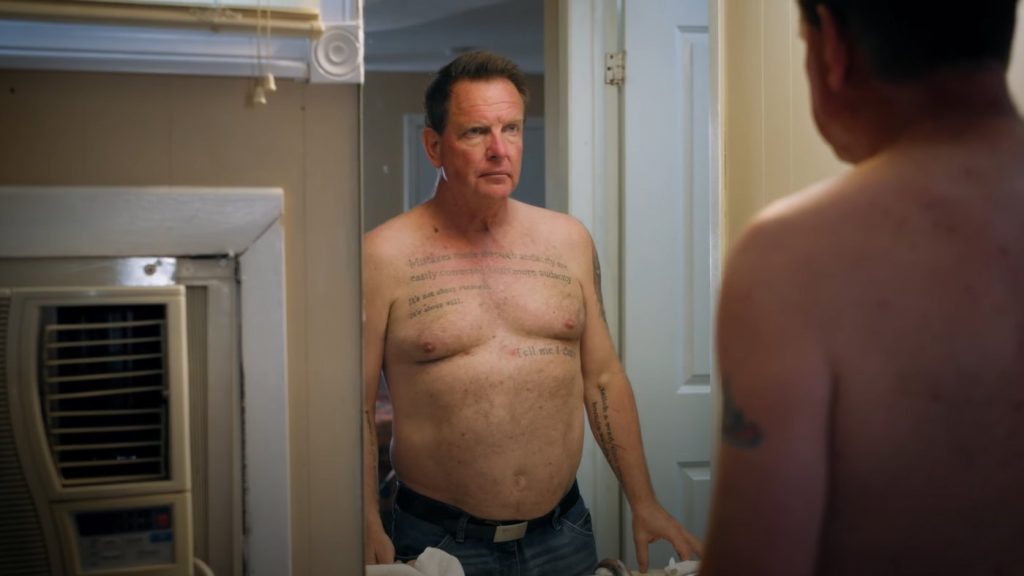In the 1990s, Steve Vogelsang earned the title of “sexiest man in Winnipeg,” becoming a well-known figure as a former sportscaster, college instructor, and executive with True North Sports and Entertainment. Throughout his career, he played an influential role in mentoring many individuals in Winnipeg as they shaped their professional journeys.
However, Vogelsang's public image took a drastic turn when he was arrested in 2017 for committing a series of bank robberies in Saskatchewan and Alberta. This shocking transformation from a celebrated local personality to a criminal raised numerous questions about his choices and overall decline. Charlie Siskel, a director and producer of the documentary “The Sexiest Man in Winnipeg,” set to release on Amazon Prime Video, remarked on the enigmatic nature of Vogelsang’s actions, asking, “What happened to this guy? Why did he end up robbing a bunch of banks? Why did he do it in such theatrically ridiculous fashion?”
Following his guilty plea for a string of bank robberies between July and October 2017, Vogelsang was sentenced in 2019 to six and a half years in prison. His criminal activities included a notable incident where he walked into a bank in Regina, with a fake bomb strapped to his chest, demanded $50,000, and claimed, “They’ve got my grandson.” This absurd yet tragic scenario is indicative of a larger narrative that the documentary aims to explore.
Ben Daughtrey, the co-director of the film, commented that they chose to showcase both the humorous and tragic dimensions of Vogelsang's personality. He acknowledged the duality of Vogelsang’s life: “He is genuinely a funny person, but there’s also something ultimately tragic about a person going to these depths to try to change his life.” The documentary, which began development after Vogelsang’s release from prison, features his involvement, including reenactments and candid reflections on his journey.
The film gathers perspectives from various current and former journalists in Winnipeg who were familiar with Vogelsang and expressed shock at his criminal actions. Siskel emphasized that the documentary serves as a character study, not a typical crime documentary. While the audience is aware of the crimes committed, the film invites viewers to ponder the underlying motivations. It poses a central question: “Why did he do it?”
During the trial, evidence revealed that Vogelsang's personal life had deteriorated. His marriage had crumbled, he was suffering from depression without adequate treatment, and he faced significant financial difficulties due to prolonged unemployment. Given his previous notoriety and charisma, the question arises as to why a once-respected figure would resort to such extreme measures, prompting Siskel to delve into societal fascination with true crime and the allure of fame.
Siskel provocatively questions why Vogelsang's story garnered documentary attention compared to other individuals convicted of robbery. He notes the public's fascination with crimes, particularly those involving former public figures, suggesting that Vogelsang's minor crimes stood in stark contrast to his previously glamorous life, making his actions all the more surprising. He urges the audience to consider their role in the societal tendency to elevate certain individuals to celebrity status following their actions.
As viewers engage with “The Sexiest Man in Winnipeg,” Siskel encourages them to act as judges, contemplating whether Vogelsang represents a monstrous figure or merely an ordinary individual who, after tasting fame, sought a misguided path to regain it. While Vogelsang asserts he does not aspire to “that much fame,” Siskel argues that the desire for notoriety is at the core of Vogelsang’s narrative. The documentary grapples with elements of redemption, acknowledging Vogelsang's struggle to reconcile with his past and the choices he made.
Ultimately, the film raises intricate themes regarding the nature of fame, the complexities of individual choices, and the societal constructs surrounding crime and notoriety.











